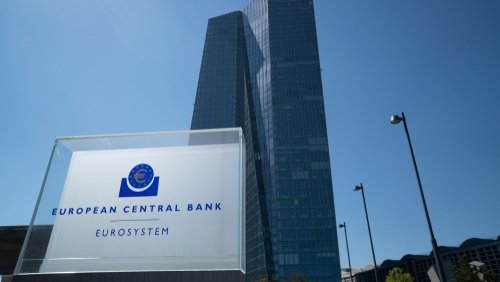Belgium, (Brussels Morning Newspaper) European Central Bank (ECB) President Christine Lagarde stressed the importance of reversing course on growth and inflation on Wednesday.
She noted that the bank has to tighten its monetary policy and prioritise reining in inflation over supporting economic growth, according to Reuters reporting.
“We have to return inflation to 2% in the medium term, and we will do what we have to do, which is to continue hiking interest rates in the next several meetings,” she stated at a conference on Wednesday.
“If we were not delivering [on our mandate] it would hurt the economy far more,” Lagarde added.
According to Lagarde, the “first destination” is to reach the neutral interest rate, which neither slows nor stimulates growth.
Olli Rehn, Governor of the Bank of Finland, stressed in an interview on Wednesday the importance of upping interest rates quickly to rein in inflation.
He pointed out that the move could move interest rate to neutral before Christmas.
The ECB upped rates 125 basis points over the last two meetings, presenting the fastest tightening on record, but reacted to inflation significantly slower than its peers.
Change of heart
“Until early this year, I was in favour of gradualism but for now, there is a stronger case for frontloading and determined action,” Rehn pointed out.
The ECB will likely follow its announced hike in October with additional hikes and end its experiment with very expansive monetary policy after more than 10 years.
Rehn reiterated that the ECB should reach neutral rate before the end of the year and added “once we get there, we’ll see if there’s a case to move into restrictive territory.”
The neutral rate is not defined, but generally stands between 1.5% and 2%, significantly higher than ECB’s deposit rate of 0.75%.
According to markets, the rate will reach 2% before the end of the year and exceed 3% in the spring of 2023 as inflation continues to near double digits and is forecast to remain well above ECB’s target of 2% next year.
Rehn stressed that growth of wages is necessary for prolonged inflation and warned that it is missing. “For eurozone inflation, there is one driver above others and one anchor more important than others,” he noted and added “the driver is obviously energy… the anchor is relatively moderate wage inflation so far.”
Besides rethinking its rates, the ECB will likely need to change its position on excess solvency as the central bank injected more than 2 trillion euro into the economy via commercial banks, largely at no or negative interest.
These banks now profit from parking that money at the ECB.
François Villeroy de Galhau, Governor of the Bank of France, previously stressed the importance of changing the terms as commercial banks stand to make significant profit without any risk while the rest of the bloc goes into downturn.
Rehn agreed, noting that “in the current and future context, one can say that these terms are quite favourable for the banks and I would be in favour of looking into this matter.”




